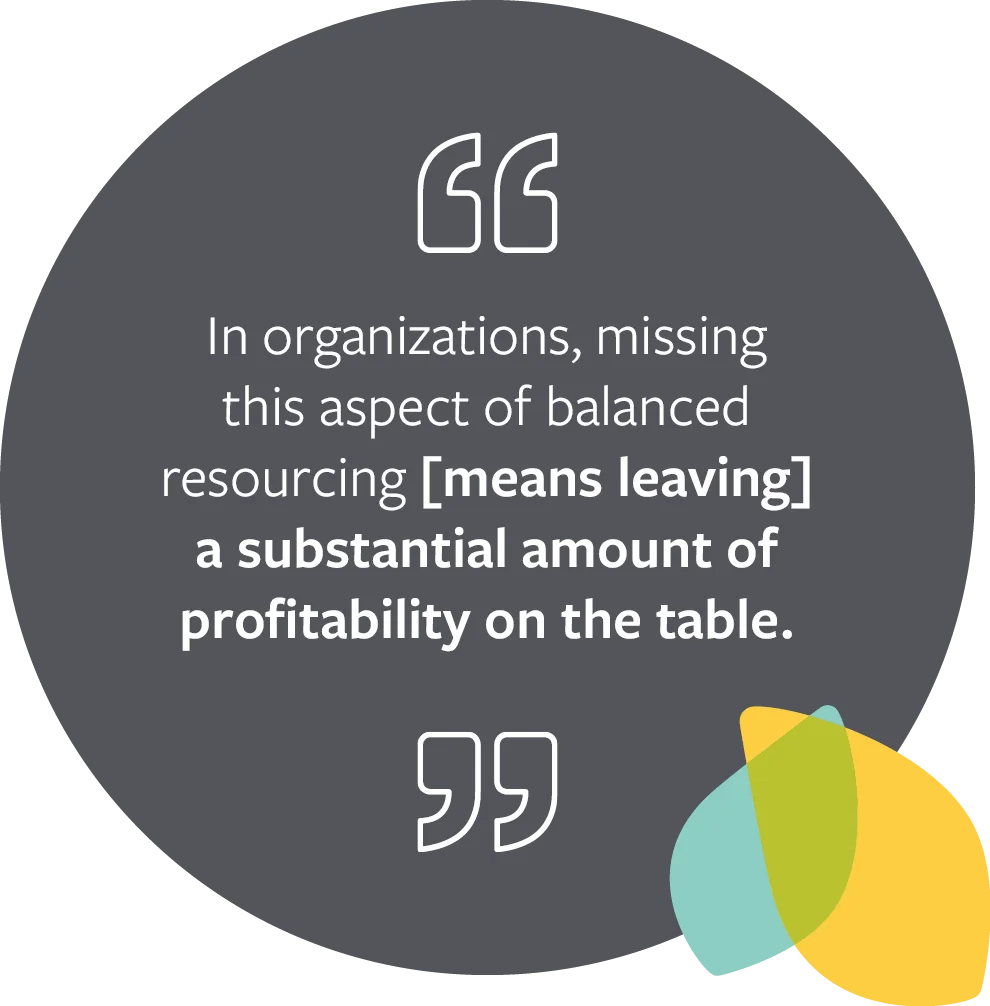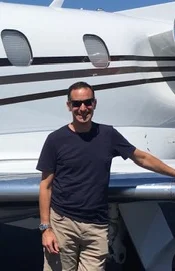In our advisory and coaching with CEOs, we have found a single non-negotiable for every high performing executive: a passion that transforms the way they see and experience life. Although hobbies and passions are commonly assumed to be for those with idle time, we see them as a necessary catalyst for CEO and business success.
For Michael Gottdenker, CEO of Hargray Communications Group, flying planes is not just a hobby, it’s an elevation of his human spirit and executive acumen. For Michael, investing time into flying has unlocked possibilities beyond unplugging from the office. In a ninety-minute interview, we learned how his experience as a pilot has impacted his personal life and the business practices implemented within Hargray Communications Group. Based on Michael’s insights, we will be offering a two-part article series: the first focusing on the personal development of CEOs through the lenses of four essential attributes acquired through passion, and the second highlighting how his passion for flight has transformed the performance of the company he leads.

Passions unlock new perspectives.
Michael discovered his passion for flight as an eighth-grade boy on the back of his father’s motorcycle during a father-son trip. Joined at the hip by adventure, they unsuspectingly discovered a passion that would separate them, as well as provide a place for them to always be together. It was on that weekend Michael took a spontaneous first flight with his father in the backseat of a small sightseeing airplane. Michael remembers being filled with curiosity in the intricate details of piloting he fondly describes as “seemingly so complex at the time.” However, it wasn’t until 1985, while away at college, Michael experimented with actual pilot training. At the same time, Michael’s father Allan had developed his own fascination with aviation, leading him to obtain his pilot’s license and purchase his own small airplane in the early 1990s.
On April 30, 1995 Allan flew from Washington D.C. to Louisa, Virginia. Ignoring the weather advisories and fog conditions, and uncertified for landing in the conditions, he attempted to ground the small aircraft. In his attempt, Allan crashed the plane approximately 500 feet from the runway and lost his life at the age of 59. Allan’s death devastated Michael. His life and relationship with flying would never be the same. Michael reflects on the decision his father made to land the aircraft in poor conditions as “not respectful” of the aircraft or environmental factors. To this day, Michael practices respect for his aircraft, the weather, and all other elements outside of his control. Michael states, “rules are there for a reason.” It has become a mantra. He works diligently to instill respect for doing the right thing and rejects egos that supersede the good of the whole.
Michael has experienced a lot in his flying career since the tragic loss of his father. Allan’s tragic accident caused Michael a rush of uncertainty about his own piloting for the next eleven years. Over time he returned to pilot training even though the memory of his father loomed large in the cockpit of his plane. Through many hours of training and coaching, Michael began to embrace these moments in a different, more spiritual way; “as though I could feel my father there in the sky with me.” By running towards his passion for flight and relying on his strengths as a pilot, Michael turned loss into acceptance and an unending spiritual connection with his father.
Passions teach us to rely on others who push us.
When relying on the support of trusted advisors, in a similar way your business relies on a board of directors, you are pushed to not only chart your course, but also tackle your fears. In 2006, with the push of a mentor, Michael regained the gumption to entertain the idea of flying once again. Michael restarted his flying lessons. However, his pace of approach to flying had slowed dramatically this time around. Only needing 40 hours of flight time to obtain his pilot’s license, Michael clocked 326 hours before he was emotionally ready to fly solo, much less obtain his license. “No flight is the same as the last and unexpected circumstances happen often. Having my instructor there with me provided the peace of mind I needed, despite having ample knowledge to fly the plane alone.” Although Michael had acquired the skills needed to fly solo, Michael was still deeply connected to the events his father endured and was not emotionally ready. He relied on his instructor to slowly nudge him toward his independence as a pilot. Through patient coaching, Michael’s instructor was able to encourage him to attempt his first solo flight.
As a CEO who is used to being depended on by others, it is not always easy to be the one needing help. The power of the relationship Michael had with his flight instructor allowed him the opportunity for a breakthrough moment in redefining his ability to address his fears head-on and seek help. In our experiences working with CEOs, we have seen firsthand how alone being at the top can feel and we understand the importance of mentorship. Learning to rely on others is a transformational moment in CEO performance. Michael describes it this way: “I have felt alone, but never isolated. There are always resources available and part of being a good CEO or pilot is asking for help when you need it. Help is a phone call away.” Through Michael’s intentionality in surrounding himself with a “board of directors” in life and business, he has redefined his potential for positive impact across all facets of life.

Passions mold personal identity and create balance.
Michael has many characteristics you’d expect to find among any high-performing CEO, but he comes with a unique approach to leadership inspired by years of investing in his passion of flight. When we asked Michael what it means to be a pilot, he stated, “when I’m flying my plane, my mind is clear. Everything else melts away.” This seems counterintuitive since flying planes takes a strong level of engagement for the pilot. How can a stressful passion be relaxing for Michael? As Michael describes it, stepping into the cockpit of the plane and setting his briefcase down allows him to step completely out of the role of CEO. With the clicking of his seatbelt, Michael as an individual is unlocked. Focusing on predictable processes and limitless navigation of his aircraft is the detachment Michael needs for rejuvenation. The mental and emotional rejuvenation that occurs in flight is so significant that Michael readily acknowledges that its absence changes him personally and professionally. A passion this deep moves quickly beyond the word hobby; it becomes a cornerstone of who we are and how we cope with and maximize life.
At a time when CEOs are asked to innovate on a dime and drive performance, they’re at a dash to find new perspective. While Michael turns to trusted advisors and colleagues, he gains a large portion of his insights from the moments spent alone, 45,000 ft above the pace of everyday business and life. In this space he is simply Michael; discovering who he truly is and what life means. “I am one with my environment and outside of the messiness of life. Physically, I feel comfort in the seat. Emotionally, I go into the sense of calm-like state.” Reflection and mindfulness are key assets to executive potential. At Transcend, we emphasize that executives must lead themselves before they can lead people or a team. When engaged in an activity (like flying) or whatever it is that helps reflection and mindfulness, leaders can create the harmony to engage in life’s “messiness” and emerge from challenges better than before.
Passions build community and purpose outside of the office.
A consistent theme we experience with CEOs is a sense of isolation that is overlaid with a sense of heightened responsibility. Those two dynamics can create an absence of connection in deep personal relationships and community. The research is clear: deep, meaningful relationships are critical to well-being and satisfaction in life. Michael uses his passion to create impact and positively influence his feelings of connection with people. “I have the opportunity to impact hundreds of people and [flying] is a wonderful way to give and care for people.” Since 2015, Michael has participated in a program to provide transportation to combat-wounded veterans to medical visits and to reconnect with their families. He has also flown in supplies to flood-restricted zones. In a magical way, by gifting time and commitment to himself and his passion, Michael has created new platforms for impact, purpose, and belonging. He claims finding purpose in his passion is what drives him to contribute to his community whole-heartedly.
There is a high price to pay for not investing in yourself as an executive leader. Surprisingly, the cost is not solely yours to bear. It impacts the performance of the business you lead and limits the personal transformations that stimulate growth and innovation. As the navigator of your journey, you must make time to do the things you love and find exceptionally challenging. The return on investment is far greater than the cost, risk, or the guilt of taking time. By developing passions and intentionally investing in rejuvenation, you become holistically stronger and capable in the transformation into your best self.
More about Michael Gottdenker:

Michael Gottdenker is Chairman and Chief Executive Officer of Hargray Holdings, LLC, a regional telecommunications service provider based in Hilton Head South Carolina, serving communities throughout the southeastern United States.
Prior to joining Hargray in 2007, Mr. Gottdenker served as Chairman and Chief Executive Officer of Access Spectrum, LLC, an FCC-licensed wireless spectrum manager; President and Chief Executive Officer and as a Board member of Commonwealth Telephone Enterprises, Inc., a Pennsylvania-based provider of local telephone and data services; senior executive at Revlon Consumer Products Corporation; and investment banker in the Corporate Finance and Real Estate Finance departments of Salomon Brothers Inc. He has also served on the Boards of NTELOS Holdings Corp.; Global Energy Decisions, LLC; and Viziqor Holdings, Inc.
Mr. Gottdenker has been active in a number of philanthropic and professional organizations, including having served as Chair of the Board of Georgetown Day School, as a Trustee and on the Executive Committee of Wilkes University, and as a member of the Washington DC Chapter of Young Presidents’ Organization where he served as Chair of the Executive Committee. He currently serves as a volunteer pilot for Veterans Airlift Command, which provides free air transportation to post-9/11 combat wounded veterans and their families for medical and other compassionate purposes through a national network of volunteer aircraft owners and pilots.
Mr. Gottdenker received a BA degree in Economics and Computer Science from Columbia University. He is married with three children and is an instrument-rated private pilot.

